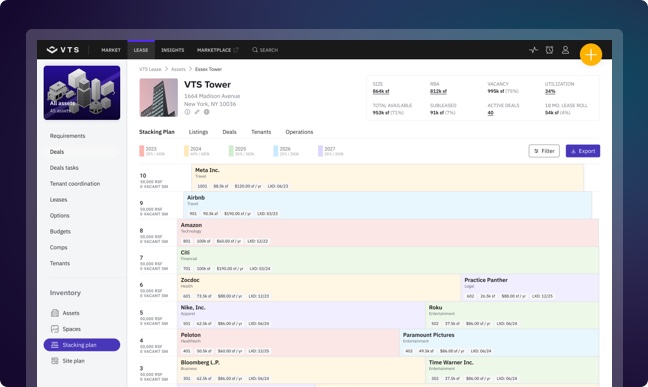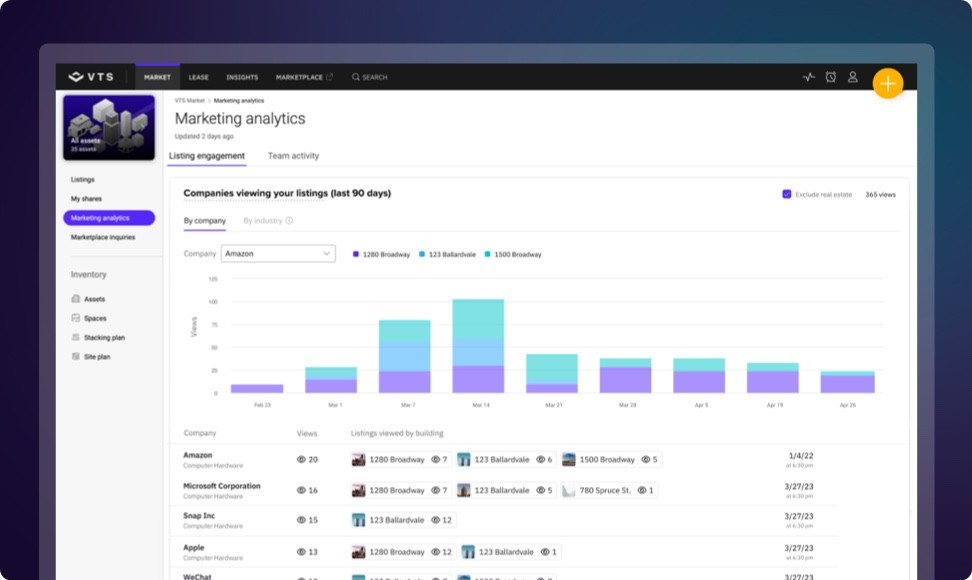Unlock the real potential of real estate
VTS brings property owners, operators, agents and tenants together on one platform to uncover new opportunities in every square foot of their properties.
Explore the PlatformHome to 12B SF of assets across the globe
In an industry where collaboration drives revenue, silos are expensive
Asset management, leasing, property management, and marketing all play a role in delivering the revenue picture for a building. VTS brings these teams together in a single platform to work together with unparalleled speed and intelligence.

Manage your entire leasing strategy from enquiry to renewal on one central app. Create a clear, live picture of your portfolio health.

Create content to market spaces across every digital marketing channel and measure its impact on leasing activity.

Deliver a seamless, personal experience for your tenants across your building and portfolio, all in one app.
VTS is more than just technology, software and insights.
We're a team of experts who know the real estate industry inside out. This is why the VTS platform is maximising portfolio value and revenue for leading industry landlords and agents.
Learn More
Mission-critical technology for CRE organizations across the globe
Hear from the industry's most influential landlord and brokerage organizations about the impact VTS has on their teams.
VTS Resources
Centralize your technology and insights
VTS Activate integrates with top CRE partners so you can centralize your property operations.

Platform Innovations
See what's new and improved for customers across the VTS Platform.
VTS Blog
Dive into our library of industry insights, Q&As, and more.








































































